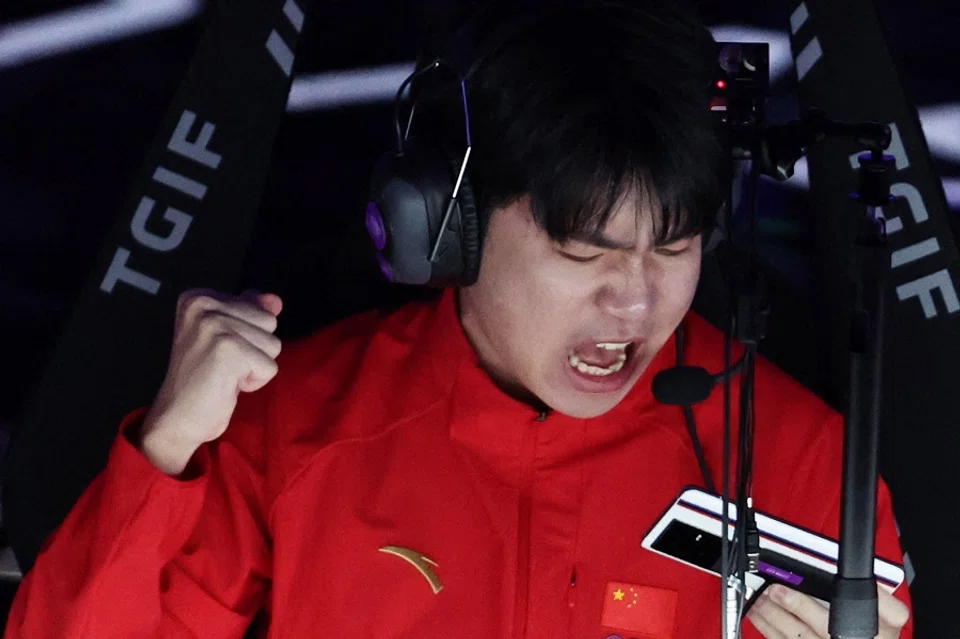What it will take for e-sports to go mainstream in China
The Chinese national team won the first e-sports gold medal at the Asian Games, marking a landmark moment in the country's gaming history. But with Beijing cracking down on youth gaming addiction and parents frowning upon it as a professional career path, what will it take for e-sports to go mainstream in China?

(By Caixin journalists Wang Xintong and Guan Cong)
For hundreds of millions of e-sports fans in China, the Chinese national team winning the first e-sports gold medal at the Asian Games was a landmark moment in the country's gaming history.
It also ushered in more victories. Including beating Malaysia in the Arena of Valor finals, Chinese players bagged a total of four e-sports gold medals and one bronze out of the six matches they participated in at the Hangzhou Asian Games - a performance that was better than some industry insiders had expected.
Pivotal development
The inclusion of e-sports as a major sporting event was not without controversy - putting it on par with traditional sports such as soccer came as Beijing cracks down on youth gaming addiction and parents frown upon it as a professional career path.
Ahead of the opening of this year's Asian Games, industry watchers had said that China's performance at the quadrennial games would be pivotal to the future development of the e-sports industry.
"The Asian Games opened the doors for e-sports to become integrated into society, much like traditional major ball sports," Hou Miao, vice-president of Tencent Games, the gaming arm of tech giant Tencent Holdings Ltd., told Caixin, adding that the significance of the move is that it will help standardise the industry.
... most clubs were forced to raise the age limit for selecting e-sports talent to 17 years old, when "talented teenagers overseas can make their debut at around 14 or 15 years old..."

China was already the world's largest e-sports market by revenue in 2020, accounting for 35% of the US$947 million in total global revenue, according to gaming industry research firm Newzoo. In the first half of 2023, the country's e-sports industry generated 76 billion RMB (US$10.4 billion) in revenue, according to the China Audio-Video and Digital Publishing Association (CADPA).
Seeking a whitelist
The domestic e-sports industry has long faced obstacles to its growth, including a 2021 government effort to limit the amount of time children can play video games to three hours a week.
The rules created a chilling effect on the industry, with some clubs having to disband their youth training teams. In addition, most clubs were forced to raise the age limit for selecting e-sports talent to 17 years old, when "talented teenagers overseas can make their debut at around 14 or 15 years old," said a source familiar with the operation of e-sports clubs.
These have hampered the efforts of local governments, which are struggling to strike a balance between utilising e-sports for regional economic development and adhering to central government guidelines of curbing youth addiction.
In the long run, this could affect the growth of China's e-sports industry, considering that younger players usually have better coordination and faster reactions and the career of an e-sports player is only a few years long.
To let underage players have enough training time, the CADPA released a set of industry guidelines in 2022, hoping to exempt minors participating in e-sports competitions from gaming time restrictions by applying for a whitelist from game developers.

However, the source familiar with the operation of e-sports clubs said asking game developers to be the authoriser did not make sense and it should be up to relevant authorities to set up a specialised certification body to adjust the training time of eligible underage athletes.
Other obstacles
The domestic e-sports industry lacks revenue from tournaments hosted domestically compared with traditional sports, said Ricky Wang, who is in charge of e-sports business at sports marketing agency Sportfive. Selling the rights of gaming events abroad is also challenging due to a lack of interest from foreign audiences, he told Caixin.
On top of that, the industry lacks professional associations and game developers to organise smaller scale, lower-level tournaments, Wang said.
These have hampered the efforts of local governments, which are struggling to strike a balance between utilising e-sports for regional economic development and adhering to central government guidelines of curbing youth addiction.
... riding the enthusiasm surrounding the Asian Games, a number of major cities, including Hangzhou, Shenzhen and Shanghai, have rolled out measures to support e-sports, including issuing subsidies for hosting tournaments.

Since late last year, riding the enthusiasm surrounding the Asian Games, a number of major cities, including Hangzhou, Shenzhen and Shanghai, have rolled out measures to support e-sports, including issuing subsidies for hosting tournaments.
Still, non-game revenues from the domestic e-sports industry amounted to 26.7 billion RMB in 2022, down 4.17% year-on-year, according to a CADPA report published in February. Such revenues, which were mainly generated from gaming livestreaming, tournaments and clubs, dropped nearly 10% year-on-year to 11.5 billion RMB in the first half of 2023.
This article was first published by Caixin Global as "Analysis: What It Will Take for Esports to Go Mainstream in China". Caixin Global is one of the most respected sources for macroeconomic, financial and business news and information about China.





